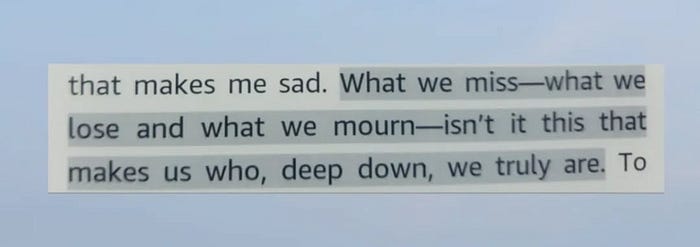A few years ago, when S decided to quit her job in six months, I judged her. I was naive enough to think that she should have stuck around for at least six more months. My mind didn’t stop whirring: the fact that she had quit in such a short time and so early in her career would look bad on her resume; future employers would ask questions she would find difficult to answer; she would have to justify this decision in random places and to people she owed nothing. She should have powered through — how bad could it have been, I thought. Exactly three years later, I had to do the same thing I judged S for. I had to quit a job in six months.
T and I shared an apartment for a while. In the span of six years, I saw her madly in love, extremely anxious in a relationship, and liberated after the breakup. T walked out of her marriage in three years, while it took A a decade and two children to do the same. Three years is too soon to end a marriage, some would argue. A decade is way too long to stay in an unhappy marriage, others would say. The stakes in a marriage are way too high, but walking out of a friendship or a relationship is not easy either. Have you ever ended a friendship and then scolded yourself for doing it: ‘I could have been a little more patient and accommodating, couldn’t I?’
If you ask P to describe his childhood, one of his laments would be about his short-lived interests and hobbies and how he could never stick to anything long enough. Guitar, vocals, harmonium, football, cricket, hiking, photography, writing — he did it all religiously at some point in his life, only to get fed up soon enough and move on to something else. ‘Jack of all trades, good at some, master of none,’ is how he likes to describe himself. The fact that growing up P had a finger in every pie makes him a great person to talk to or be around. Shouldn’t that be enough? Why not?
When I look back at my last few years, it feels like a big part of adulthood is quitting jobs you worked hard to get, walking away from people you once loved, and losing interest in things that used to bring you joy. And every time you choose to leave someone or something behind, there is a voice inside you — along with many voices around — asking: why can’t you just power through? To be committed to people and to stick to things, even on the days it’s not the easiest to do so, is extremely important. But it’s equally important to know when to walk away. There is immense joy in longevity, but it’s also worth remembering and recognizing that quitting does not always mean running away. Sometimes, it just means you love and respect yourself enough to know when to put yourself first.
I have quit jobs, walked away from people, and left things, but never on a whim, and it’s also never been easy. There is a certain comfort in familiarity and inertia in starting anew — even when you know it needs to be done. Every time I’ve decided to quit something, it’s only been because continuing felt even harder. The obvious next thing to figure out was: why?
Was it hard because it pushed me to do something I didn’t already know and it was embarrassing to be an amateur in a world full of experts? Or because it revealed a side of me I was neither fond nor proud of? Or was it hard because it eroded me from inside and stood against everything I believed in and lived by? Every time I have had to decide if I should power through or quit and leave immediately, I have had to answer these questions in my head as truthfully and ruthlessly as possible.
The process of asking and answering these questions takes time because we are too smart, and if there’s one thing most of us excel at, it is fooling ourselves. We are great at telling lies and stories not just to other people but to our own selves too. You will find yourself conveniently ignoring all the signs that the world and your body are giving you. You will brush off the anxiety and silence the voices within you. You will continue to stay and give yourself pep talks on perseverance and duty when you know deep down that you should have left ages ago. There will also be times when you will leave something while knowing that staying could have helped you become a better person.
Choosing to quit or stay isn’t just a decision; it’s a reckoning. It demands honesty — the kind that stings and is not easy to digest. Walking away or choosing to stay while the world tells you otherwise can be the most courageous thing you do. Not because you’re giving up or running away, but because you’re finally listening. Listening to your body, your gut, and that small, steady voice within you that’s jostling to be heard amidst all the noise.
The thing is, we are constantly changing and evolving as people, and so are our desires and delights. What once felt like purpose might start to feel irrelevant, and you might get drawn towards something that you never even noticed earlier. And it takes strength to accept that. To trust that choosing yourself will often inevitably mean disappointing others, or facing uncertainty, or starting again. But it will also mean being at peace with who you are becoming. And that, in the end, is worth everything.






